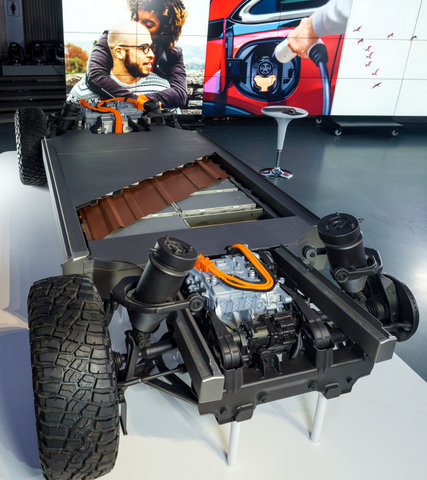Big & Small Auto Companies Work Together on EVs & Fuel Cells
Competition has always been a hallmark of the auto industry, but the move to embrace electric drive technology has driven even the most competitive companies to seek out partners to share costs and help speed new products to market. The alliances have differences, but the bottom line is the bottom line—vehicles needed to meet growing government regulations will get to the market quicker and at less cost. The consumer should be the ultimate beneficiary of all this working together.

Even before the curve of the coronavirous, partnerships were happening. An economic downturn was expected, so industry hunkers down and prepares for the worst, hedging its bets where possible. Environmental regulations of a multitude of different varieties—sales bans, regional restrictions, tariffs and fees that disadvantage ICEs in favor or EVs—all drive these trends. Along with a growing sense of personal environmental purpose—and reduced material costs and improved performance for batteries—the case for electric vehicles has been growing stronger.
These converging forces have led to a variety of partnerships since last year.
- Ford and Volkswagen first said they would cooperate on technology and cost-sharing for EV development.
- Ford also bought a share of the EV start-up Rivian and indicated its platform would be used on upcoming electric models, although not necessarily the F-150 EV.
- Honda announced that it would be using General Motors (GM) recently announced EV platform for two future Honda vehicles. The two companies also are partners in GM’s Cruise autonomous vehicle project and have worked together on battery development.
- Toyota is partnering with battery (and car) maker BYD in the China market for future EVs.

- BMW and Toyota are working together on fuel cell electric vehicles. A new BMW plant in China that has just started construction will produce the BMW 3-Series in full electric, plug-in hybrid and fuel cell models.
- Smaller electric car makers BYD and Karma Automotive are publically offering their technology in search of partnerships.
- Though delayed by COVID-19’s impact, start-up automakers Rivian and Lordstown Motors still expect to begin producing electric pickups before the end of the year. Lordstown Motors will operate in a former GM plant in Ohio that was purchased with money loaned to the company by GM, similar to what happened between Toyota and Tesla to get the latter company started at its plant in Fremont, California.
The fruits of many of these partnerships will not be seen for several years, but the Honda-GM models may be some of the first seen. Honda and GM said two new Honda vehicles using GM’s global electric vehicle system and Ultium batteries will hit the market during the 2024 model year. They will be built at unspecified GM plants.

The goal in this and other partnerships is to unlock greater economies of scale for key EV components—especially batteries—as this portion of the auto industry begins to grow. In theory, partnerships also accelerate product development for the partner companies, although evidence of this from past co-development projects is scant. Rather than just a new model, in this case automakers are ramping up a whole new technology that all recognize is critical for the future, but costly to bring to market.
Related Stories You Might Enjoy–Partnership News Background
News: GM Lays Out EV Strategy
News: Rivian Electric Pickup/SUV Revealed
News: Toyota Moves into Big Truck Business; Partners with BYD

4 thoughts on “News: Electric Partnerships in High Gear”